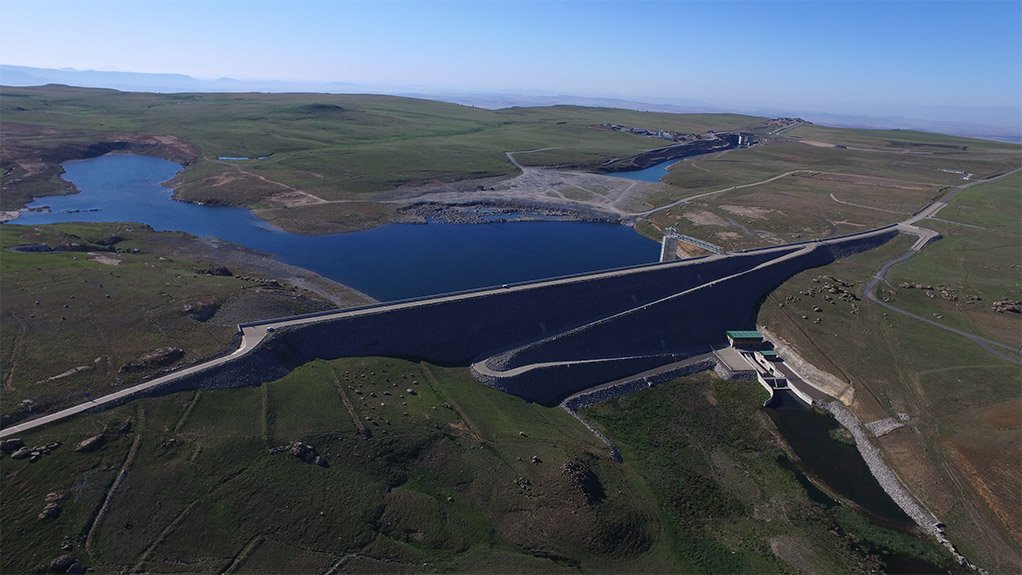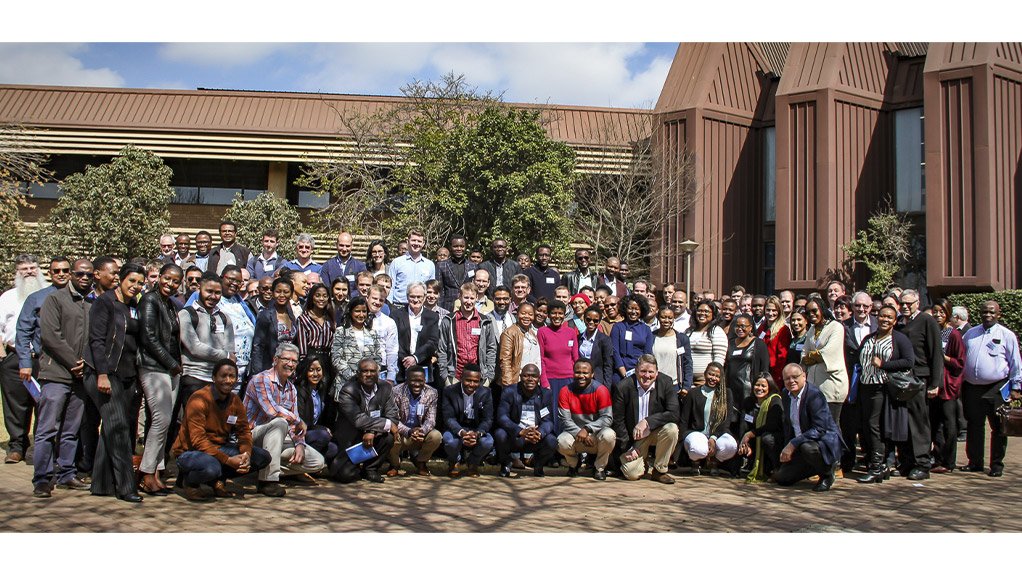Eskom losing skills to overseas utilities



BULK UP STORAGE As part of its plan to end load-shedding, South Africa should invest in another pumped-storage scheme system, such as Ingula, as part of its effort to avoid future energy storage challenges
STREGTHENING SKILLS The Eskom Power Plant Engineering Institute produced 315 graduates, whereby 155 Eskom employees obtained master’s or doctorate degrees
The continued flight of highly skilled and experienced technical staff from State-owned power utility Eskom to the local private sector and overseas power utilities is concerning, but also flattering, says Stellenbosch University engineering dean Professor Wikus van Niekerk.
“These engineers, which have been trained by quality universities, such as the universities of Stellenbosch, Cape Town, Pretoria and the Witwatersrand, have obtained practical experience on various systems after working at Eskom for several years and are now sought after globally,” he adds.
Van Niekerk – who is the consortium codirector of the Eskom Power Plant Engineering Institute (EPPEI) with University of Cape Town (UCT) Professor Robert Knutsen – emphasises, however, that there are still some highly skilled individuals at the power utility who need the support of society for the challenging work they are undertaking under some exceptionally difficult circumstances.
“For example, the Eskom team at National Control is balancing a fragile power system that very few power system controllers globally would have the guts to tackle.”
Continued skills upliftment is critically important to run electricity providers of any size in South Africa, or abroad.
Therefore, ongoing support of university research in power generation, through programmes such as the EPPEI, is vital, says Knutsen, who is the former UCT Mechanical Engineering Department head.
“Through the EPPEI programme, established in 2012, Eskom has made a significant contribution to the technical know-how and upskilling of South African engineers and technicians.”
EPPEI was developed to further improve the skill levels of Eskom engineers responsible for operating and maintaining the existing coal-fired power stations, new builds and future power generation projects such as renewables.
The institute partnered with seven South African universities and nine South African universities of technology that collectively host nine specialisation centres, ranging from emissions control to asset management and renewable energy.
This partnership, which ended last year, produced 315 graduates, whereby 155 Eskom employees obtained master’s or doctorate degrees through research projects in collaboration with Eskom technical staff aimed at addressing various technical challenges facing Eskom and the broader power industry in Africa and South Africa.
“These engineers were also taught better problem-solving methods and, although the impact is difficult to quantify, we can only hope that this improved their ability to address the challenges presented by South Africa’s faltering electricity system while we wait for additional generating capacity to be added to the grid,” states Knutsen.
With installed capacity of 50 GW, South Africa should be able to easily handle its evening peak electricity demand of about 35 GW, but the energy availability factor of Eskom’s coal fleet is currently only about 60%, says Van Niekerk.
“This is owing to the unreliable and fragile state of the country’s electricity-generating system, especially the ageing coal-fired power plants in Eskom’s fleet which have been poorly maintained for various reasons over the past 20 years. Therefore, up to 40% of the Eskom coal fleet is either under planned or unplanned maintenance at any time,” says Van Niekerk.
These coal plants are prone to failure, as the materials from which they are made and the conditions under which they have to perform result in the incremental degradation of these materials over time, says Knutsen, who also heads up the Eskom Specialisation Centre for Materials and Mechanics.
“That’s why these materials have a finite lifetime and, for the most part, those lifetimes have been extended, making these materials increasingly prone to failure.”
Enter Renewables
As renewable-energy power stations will comprise the majority of the generation capacity needed to support and replace South Africa’s ageing coal fleet, the Eskom Specialisation Centre in Renewable Energy, hosted at Stellenbosch University, was included under the EPPEI programme and augmented in 2017 by the introduction of the Eskom Power System Simulation Chair.
Van Niekerk says with the support of Eskom, Stellenbosch University has trained and graduated many highly skilled engineers that will support the roll-out of renewables in South Africa, an initiative that was re-emphasised last month by President Cyril Ramaphosa when he announced his action plan to end load-shedding.
The large cohort of engineers trained through the EPPEI programme – with some employed by Eskom and many others working for independent power producers – will play a significant role in designing and overseeing the construction of the country’s renewable-energy projects, emphasises Van Niekerk.
However, he acknowledges that there is a significant challenge with energy storage in future, especially considering the measures announced by Ramaphosa.
“If the President’s plan is realised, the amount of private-sector-generated power wheeled into the grid, which will be predominantly from solar photovoltaic systems, will require significant additional large-scale storage to ease the strain on the grid.”
To support expertise on how to store this energy to allow for a more dispatchable power supply, instead of the variable power supplied by renewables, Stellenbosch University developed a course module on energy storage, which reviews different storage technologies, including battery storage, as part of the EPPEI programme.
“We are also working on a training programme focused on hydrogen, which is another form of storage, in addition to our long-standing focus on thermal energy storage by concentrated solar power stations,” adds Van Niekerk.
He highlights the need for South Africa to build another pumped-storage scheme system, in addition to those at Ingula, which straddles the Free State and KwaZulu-Natal border; Drakensberg, in KwaZulu-Natal; and Palmiet, in the Western Cape.
“It is really something that we should invest in now because you can’t build a pumped-storage scheme system overnight. It is probably a five-year project, if not longer.”
Comments
Press Office
Announcements
What's On
Subscribe to improve your user experience...
Option 1 (equivalent of R125 a month):
Receive a weekly copy of Creamer Media's Engineering News & Mining Weekly magazine
(print copy for those in South Africa and e-magazine for those outside of South Africa)
Receive daily email newsletters
Access to full search results
Access archive of magazine back copies
Access to Projects in Progress
Access to ONE Research Report of your choice in PDF format
Option 2 (equivalent of R375 a month):
All benefits from Option 1
PLUS
Access to Creamer Media's Research Channel Africa for ALL Research Reports, in PDF format, on various industrial and mining sectors
including Electricity; Water; Energy Transition; Hydrogen; Roads, Rail and Ports; Coal; Gold; Platinum; Battery Metals; etc.
Already a subscriber?
Forgotten your password?
Receive weekly copy of Creamer Media's Engineering News & Mining Weekly magazine (print copy for those in South Africa and e-magazine for those outside of South Africa)
➕
Recieve daily email newsletters
➕
Access to full search results
➕
Access archive of magazine back copies
➕
Access to Projects in Progress
➕
Access to ONE Research Report of your choice in PDF format
RESEARCH CHANNEL AFRICA
R4500 (equivalent of R375 a month)
SUBSCRIBEAll benefits from Option 1
➕
Access to Creamer Media's Research Channel Africa for ALL Research Reports on various industrial and mining sectors, in PDF format, including on:
Electricity
➕
Water
➕
Energy Transition
➕
Hydrogen
➕
Roads, Rail and Ports
➕
Coal
➕
Gold
➕
Platinum
➕
Battery Metals
➕
etc.
Receive all benefits from Option 1 or Option 2 delivered to numerous people at your company
➕
Multiple User names and Passwords for simultaneous log-ins
➕
Intranet integration access to all in your organisation



















